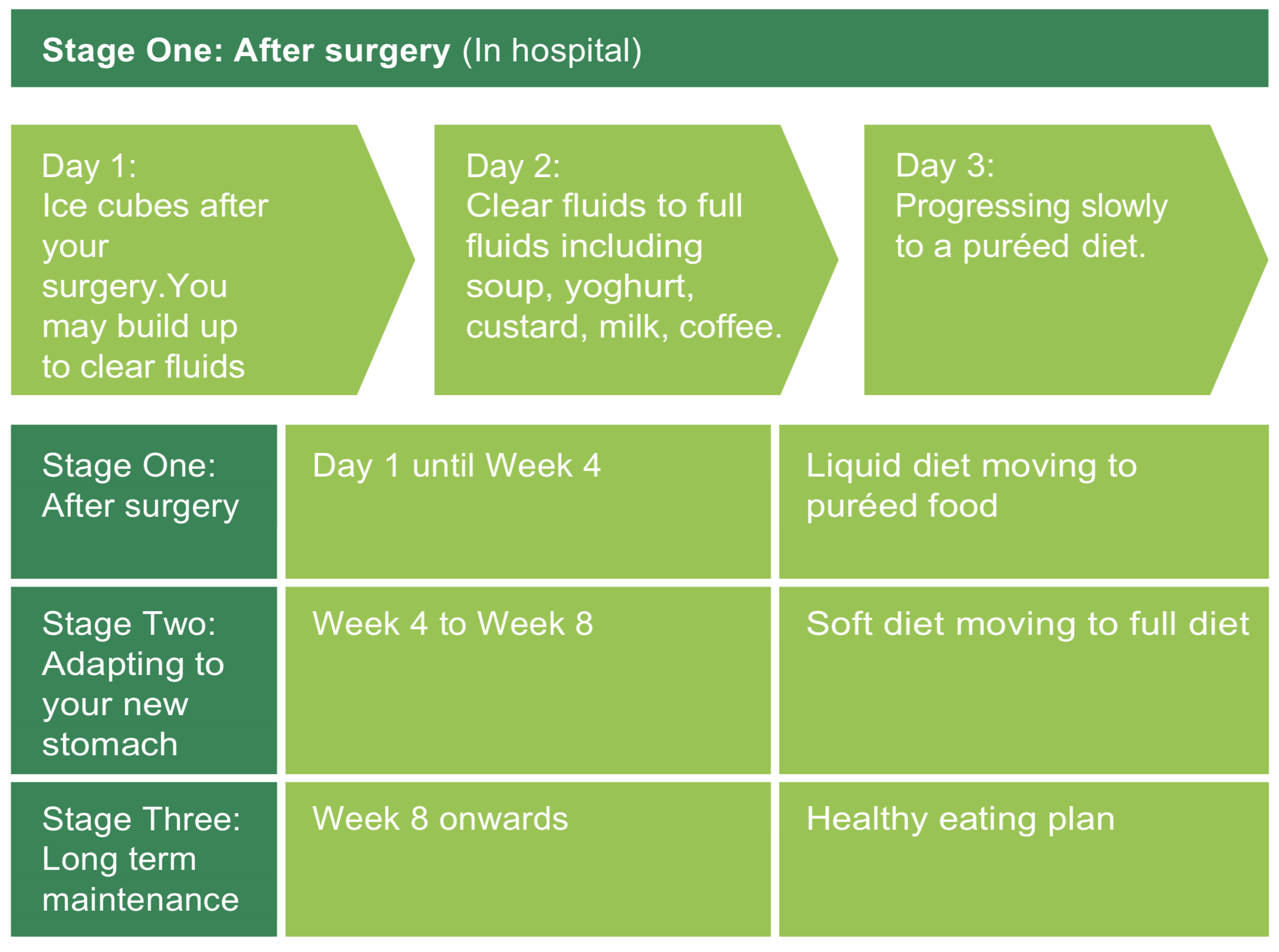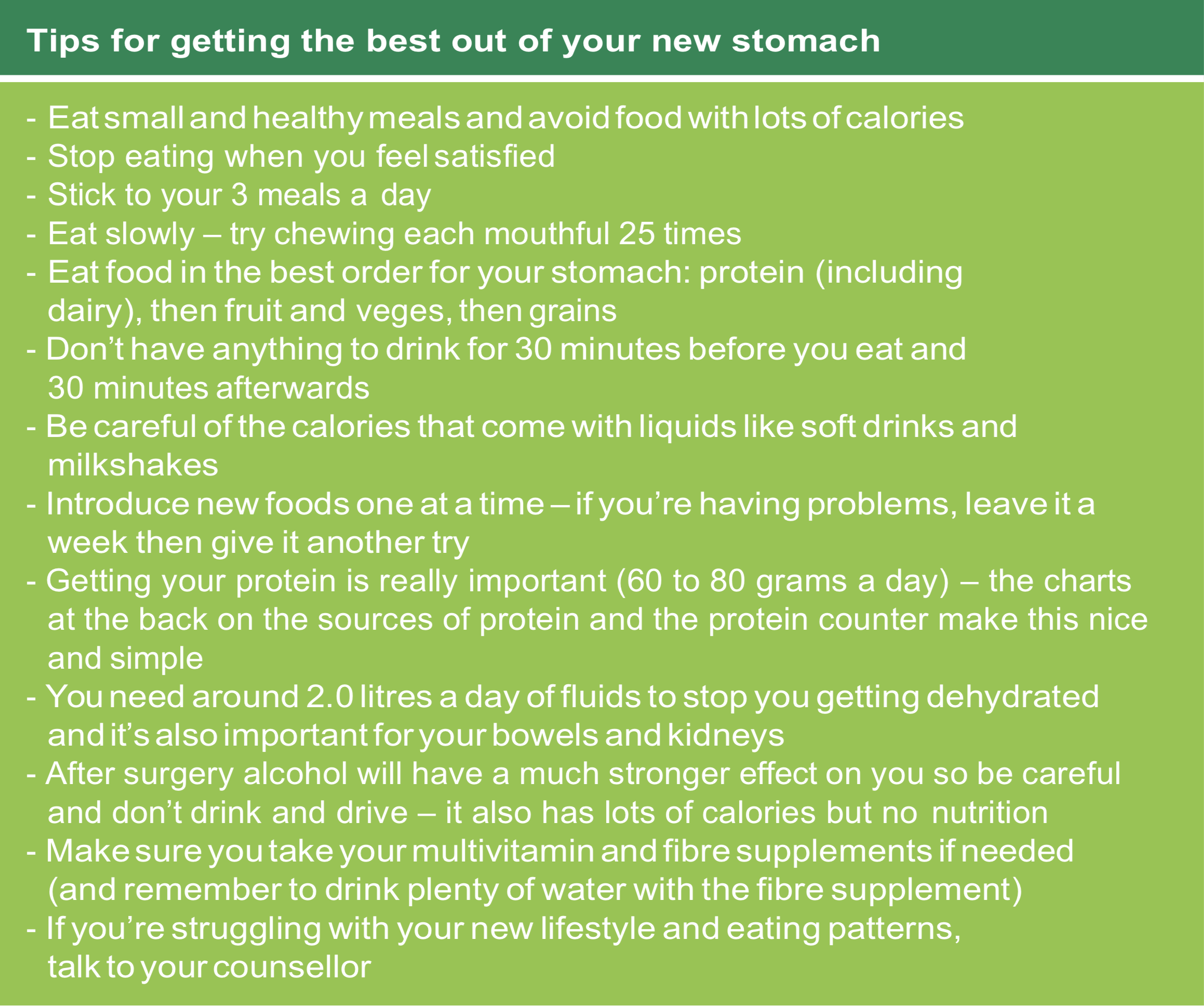Your surgery helps you lose weight by reducing the hormones that make you feel hungry and the size of your stomach so you feel full after small meals. The surgery is only the tool to assist you. It needs to be backed up by changes to your lifestyle – what you eat and how active you are.
Your dietitian will help you manage the changes to your diet after your operation and work with you to develop a life-long healthy eating pattern to maintain a steady weight. Their advice will be really important in helping you get where you want to be after surgery.
Our goal is to help you develop a healthy eating pattern so you can maintain a steady weight for the rest of your life. Your dietitian will talk to you about the things you can eat. We recommend you get their advice after your operation as they play a really important role in helping you meet your goals. You will need to constantly be aware of getting enough fluids. Because your diet will remain small you will need to continue to have your multivitamin supplements, and to come to your check-ups so we can make sure everything is going well.
After surgery you will start to drink and build up your fluid intake. You should stop drinking half an hour before eating. Then eat for half an hour. Have a half hour gap and start drinking again. When you feel full stop eating. If you over eat you will lose less weight or if it is too much, gain weight.


When you go home you’ll be on a smooth puréed diet so you’ll need a food processor. You shouldn’t feel hungry. Make sure you follow the advice of your surgeon and dietitian and stick to the guidelines that follow.
Because your diet is small you need to be careful of vitamin or mineral deficiencies so it’s vital to take your multivitamins – in the early stages this can be in a liquid form or crushed. We recommend two Centrum multivitamin and calcium supplements but if you choose something else be sure to talk with our dietitian and ask if it has 400 μg folate, as this is important. It’s also very important for you to have your follow-up blood tests and check- ups so we can be sure you’re getting what you need.
As well as planned exercise make sure you increase the amount you move and walk during the day – every little bit helps. After surgery you should aim to be ambulant and walk as much as possible. Approximately four months after your surgery you can increase your exercise. You should consider a gym based program with a lifestyle coach as it is an important part of achieving your goals.
It will help improve your overall health, keep up your weight loss and increase your metabolism. You should build up your exercise gradually starting with simple exercises like walking, swimming and aqua jogging. Then later you can try things like jogging, cycling and going to the gym. In the beginning, you may be limited as to how much exercise you can do but you should eventually aim for 60 minutes of moderate exercise a day – remember the more energy you use the more weight you’ll lose.
It is important to find an exercise that you enjoy. This can be inside or outside; land or water; on foot or wheels; alone or in a group. Exercise should be enjoyed.

This is the best way to monitor how you’re going. If you aren’t losing weight or are putting it on you’ll need to make some changes to what you’re eating and how much exercise you’re doing.
